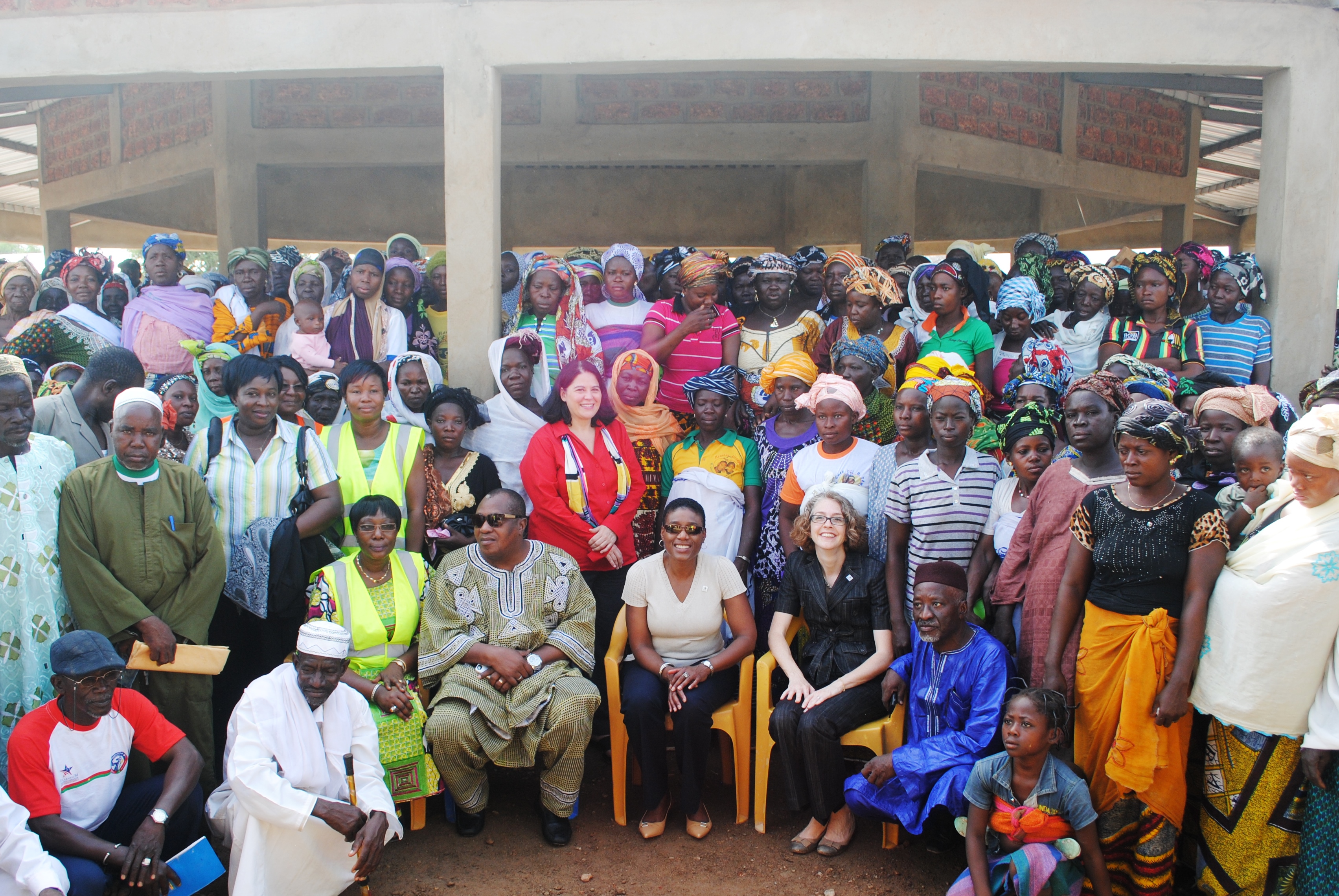Members of MCC and MCA-Burkina Faso celebrate with beneficiaries the inauguration of an 89-mile road and a 5,535-acre irrigated perimeter, each an important part of MCC's compact with its partner country.
As I looked at the faces in the market, I recognized Clarisse Belemou’s and Sata Seri’s from the previous night’s dinner. Clarisse stood to speak on behalf of the vendors who had come to the nearly completed Dî market to meet with me and with my colleague, Alicia Phillips Mandaville, during our trip earlier this month to the Sourou Valley in Burkina Faso. Clarisse explained that the market stalls were much improved now, with metal roofing and cement floors replacing straw roofing and dirt floors. This upgrade, she said, will enable women to keep their products fresh longer and sell them during the rainy season without worrying about flooded market stalls.
MCC also financed construction of a 5,500-acre irrigation project in the Sourou Valley, and Sata added that women are now planting higher-value crops on the land—cabbage, cucumbers, potatoes, okra, and watermelons—and earning more money. In both the Sourou Valley and Comoé province, more than 7,600 women received training in agricultural production. Another 900 received instruction on improved techniques for breeding chickens. And now, these women will have a newly constructed market where they can sell their diverse products.
In addition, by the end of MCC’s five-year compact with Burkina Faso on July 31, nearly 2,200 women will have received parcels of irrigated land secured in the form of leases or titles. For the first time, another 400 will have their names on leases for parcels in previously constructed irrigated perimeters. This includes Bintou Drabou, whom I met and personally presented with her long-awaited land title.
In all these ways, women are benefiting from MCC’s investment in Burkina Faso.
During the dinner, the women shared their produce for us to eat and their thoughts on how MCC’s investment also changed their lives in unmeasurable yet just as meaningful ways.
Saybata Ky, the leader of women’s cooperatives in the Dî perimeter, noted that with rights to their separate plots of land, women now earn enough money to purchase their own clothing and contribute to their families. They no longer ask their husbands for money every time they want to make a purchase, giving the women in Dî a newfound sense of independence.
When my MCC colleague Alicia spoke at the dinner, she said, “You know, I come to countries and I meet with a lot of leaders, a lot of people with high positions in the government. But the most important people I’ve met are the women who shared dinner with me tonight.”
I could not have said it better myself.

